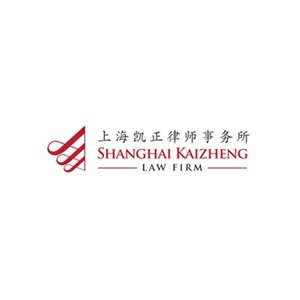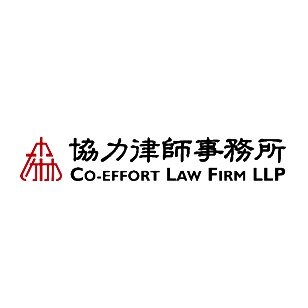Best Tax Increment Financing Lawyers in China
Share your needs with us, get contacted by law firms.
Free. Takes 2 min.
Or refine your search by selecting a city:
List of the best lawyers in China
About Tax Increment Financing Law in China
Tax Increment Financing (TIF) is a public financing method used for subsidizing infrastructure, community improvements, and other development projects. It originated in the United States but has since been adopted in several countries, including China. In China, TIF mechanisms have been slightly adapted to fit the local government's strategic urban planning and infrastructure development goals. The focus is primarily on economic development, urban renewal, and infrastructural advancement.
Why You May Need a Lawyer
Legal assistance is often crucial in navigating the complexities of TIF in China due to the intricate nature of its implementation and regulation. Some common situations where legal help might be necessary include:
- Understanding the specific legal framework and requirements for TIF projects in a particular locality.
- Negotiating development agreements or contracts with local government authorities.
- Addressing compliance issues related to environmental regulations or land use.
- Managing disputes or litigation arising from TIF agreements.
- Assisting in the preparation of necessary documentation and financial projections for project approvals.
Local Laws Overview
The legal framework for TIF in China is influenced by several key aspects:
- Regional Variations: Different provinces and municipalities may have varying regulations and policies guiding TIF implementation.
- Land Use Law: Adherence to national and local land use planning laws is essential, often requiring coordination with multiple government agencies.
- Environmental Regulations: TIF projects must comply with environmental protection laws, which can involve rigorous assessment and approval procedures.
- Financial Regulations: Transparency and accountability in financial operations are emphasized, with specific requirements for public funding and expenditure reports.
- Government Approvals: Securing approvals from different levels of government is necessary, which can be a complex and time-consuming process.
Frequently Asked Questions
What is the primary purpose of TIF in China?
TIF is primarily used for urban development, infrastructure improvement, and enabling economic development in designated areas.
How do local governments fund TIF projects?
Local governments fund TIF projects by capturing future increased tax revenues generated from the improvements made in a designated district.
What types of projects are typically financed through TIF?
TIF can finance a variety of projects, including infrastructure development, public facilities, environmental improvements, and urban redevelopment.
What is the approval process for a TIF project?
The approval process involves preparing detailed project proposals, impact assessments, securing government approvals, and sometimes public consultations.
Are there risks associated with TIF projects?
Yes, some risks include financial overruns, project delays, insufficient revenue generation, and potential legal disputes.
Can private developers initiate TIF projects?
While TIF is typically government-initiated, private developers can participate through public-private partnerships under specified conditions.
What laws govern TIF in China?
TIF projects are primarily governed by local regulations, national land laws, financial regulations, and environmental protection laws.
Is public consultation required for TIF projects?
In some cases, public consultation may be required, especially for large-scale projects that significantly impact the community.
How is project success measured in TIF?
Success is often measured by the project's ability to spur additional private investments, generate tax revenue, and meet community development goals.
Can TIF mechanisms be used in rural areas?
While primarily used in urban settings, TIF mechanisms can be adapted for rural development under certain local regulations.
Additional Resources
For more information, consider reaching out to the following resources:
- Local Development and Reform Commissions: They provide guidance and oversight for TIF projects.
- Ministry of Finance in China: For policies regarding public financing methods like TIF.
- Environmental Protection Agencies: For regulations related to environmental assessments and compliance.
- Legal Firms Specializing in Real Estate and Infrastructure: They can provide expert assistance and representation.
Next Steps
If you require legal assistance in the realm of Tax Increment Financing, consider the following steps:
- Conduct a preliminary self-assessment of your needs and gather relevant documentation.
- Research and contact legal professionals or firms specializing in TIF and infrastructure development in China.
- Schedule consultations to discuss your case's particulars and understand your legal options.
- Engage a lawyer or law firm with a proven track record in handling TIF-related cases that align with your needs.
- Maintain ongoing communication with your legal counsel to effectively navigate through the legal and procedural landscapes of TIF.
Lawzana helps you find the best lawyers and law firms in China through a curated and pre-screened list of qualified legal professionals. Our platform offers rankings and detailed profiles of attorneys and law firms, allowing you to compare based on practice areas, including Tax Increment Financing, experience, and client feedback.
Each profile includes a description of the firm's areas of practice, client reviews, team members and partners, year of establishment, spoken languages, office locations, contact information, social media presence, and any published articles or resources. Most firms on our platform speak English and are experienced in both local and international legal matters.
Get a quote from top-rated law firms in China — quickly, securely, and without unnecessary hassle.
Disclaimer:
The information provided on this page is for general informational purposes only and does not constitute legal advice. While we strive to ensure the accuracy and relevance of the content, legal information may change over time, and interpretations of the law can vary. You should always consult with a qualified legal professional for advice specific to your situation.
We disclaim all liability for actions taken or not taken based on the content of this page. If you believe any information is incorrect or outdated, please contact us, and we will review and update it where appropriate.
Browse tax increment financing law firms by city in China
Refine your search by selecting a city.















